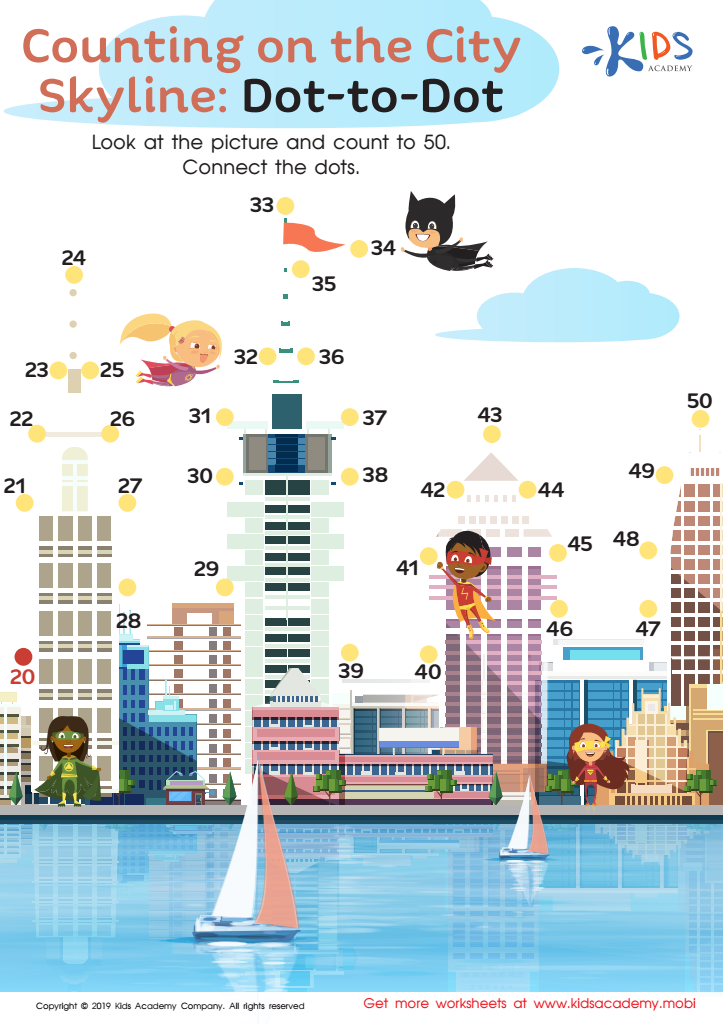Number Recognition Numbers up to 100 Worksheets for Ages 3-5 - Page 2
25 filtered results
-
From - To


Counting on the City Skyline: Dot-to-Dot Worksheet
Number recognition for children ages 3-5 is a foundational skill that significantly contributes to their overall cognitive development and future academic success. At this age, children are naturally curious and eager to learn, making it the perfect time to introduce them to numbers up to 100.
Understanding number recognition is crucial for several reasons. Firstly, it fosters essential math skills, providing a basis for counting, basic arithmetic, and problem-solving. Recognizing numbers lays the groundwork for more complex mathematical concepts they will encounter later in their education.
Secondly, number recognition aids in enhancing children's cognitive abilities, such as memory, attention, and pattern recognition. Engaging with numbers promotes critical thinking and helps them learn to make connections between quantities and their representations.
Finally, instilling a solid understanding of numbers can boost children's confidence and self-esteem. Mastery of number recognition allows them to feel more capable and independent, making them more enthusiastic learners.
Parents and teachers should prioritize this developmental milestone by incorporating fun and interactive activities, such as games, songs, and hands-on experiences. Supporting number recognition at home and in the classroom empowers young learners, cultivating their love for mathematics and setting a positive learning trajectory for their future.
 Assign to My Students
Assign to My Students









%20(1).jpg)










